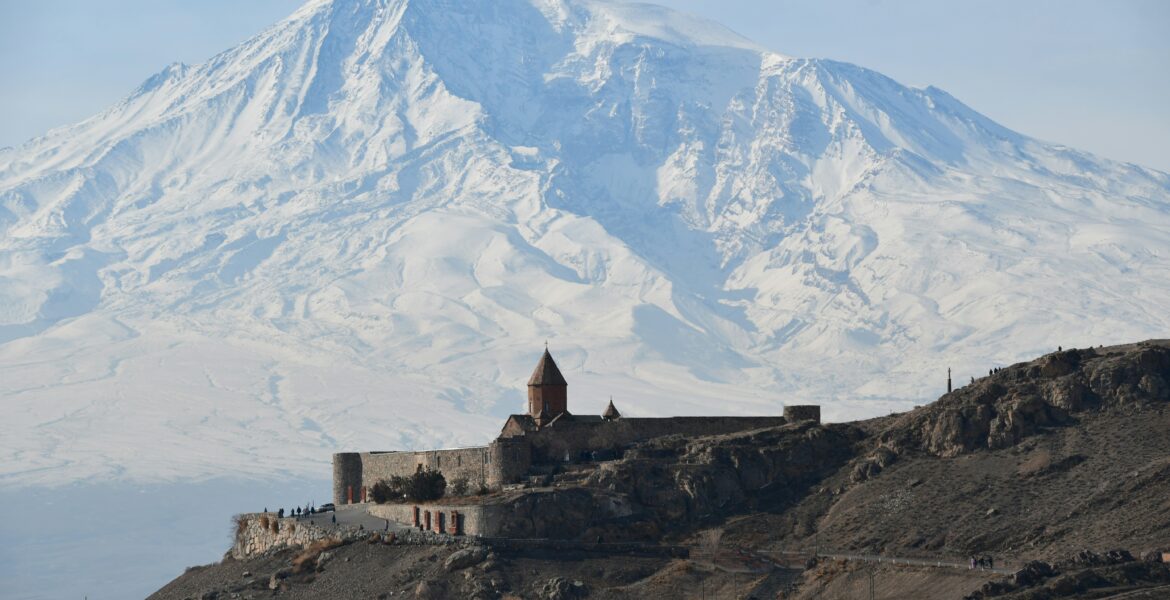After the military clashes of 2020 and 2023 and numerous diplomatic meetings in different formats, the longest-running conflict in the post-Soviet space is closing. Azerbaijan and Armenia are ready to sign a peace treaty. Work on the text of the agreement continues, but in the latest, tenth version, Baku explicitly called for the exclusion of provisions containing territorial claims in Karabakh from the Armenian Constitution and legislation.
In Armenia, both the authorities, analysts and the media were initially outraged by the unprecedented demands. Isn’t this the internal affair of Armenia? Why is it that one country demands to change the basic laws of another? Why, before signing a peace treaty, does Baku require Yerevan to amend the Constitution? How legitimate and fair is this demand?
Former British Ambassador to Azerbaijan James Sharp expressed the opinion that Azerbaijan can absolutely justifiably demand from Armenia to amend the Constitution – that is, to renounce territorial claims in the main law of the country.

Prime Minister Nikol Pashinyan
Of course, the basic law is a purely domestic matter of the country itself, but only as long as it does not contain a threat to neighbouring countries. For your fist’s freedom ends where someone else’s nose begins. The fact is that already in the preamble to the Constitution of Armenia there is a reference to the Declaration of Independence, which contains territorial claims to its neighbours – Azerbaijan and Turkey.
James Sharp recalled that there is a fairly fresh precedent of this kind. In 1998, with the conclusion of the Belfast Agreement (also known as the Easter Friday agreement), Ireland amended its legislation on territorial claims against Northern Ireland, which is part of the United Kingdom. In order to end the long-standing bloody conflict, the Republic of Ireland had to amend articles 2 and 3 of its basic law. The bloodshed in that region has stopped.
Any international agreement may be revoked by the Constitutional Court of a country if it is contrary to the Constitution of that country. This will not require elections, a referendum, or a color revolution. It’s just a trial. Therefore, when a peace treaty is concluded, territorial claims in the Constitution become a matter of international law as well as national law, and the process of making the necessary changes must be carried out before a peace treaty is signed.
Even if the delimitation of borders, which is absolutely legitimate from the point of view of Armenian legislation, has caused such strong protests in Armenia (the “Tavush for the Fatherland” movement, led by Archbishop Bagrat Galstanyan, although it has not achieved its main objective of overthrowing the existing authorities, it has created an unstable situation in the country), then Azerbaijan’s fears about a peace treaty, should it be contrary to the Armenian Constitution, are understandable. And it is highly likely that the judges of the Constitutional Court of Armenia will be forced to declare this treaty invalid. Because the decision contradicts the basic laws of the country.
It should be assumed that uncertainty and ambiguity in the recognition of territorial integrity are unacceptable when a peace agreement is signed. Azerbaijan cannot allow a peace agreement to be signed, which can be cancelled by a simple appeal to the court.
Moreover, such a treaty cannot be ratified by the parliament of Armenia. The third paragraph of article 116 of the Armenian Constitution clearly states: “International treaties contrary to the Constitution cannot be ratified”.
Azerbaijan believes that Armenia’s renunciation of territorial claims to Azerbaijani lands, which should be enshrined in the main legislative document, will be a long-term guarantee of peace and stability in the region.
If Armenia is not prepared to give up its intentions to seize foreign sovereign territories, that means that it is not at all prepared for peace. Azerbaijan, which has won the wars and returned its territories, should not persuade a country that has not given up its aggressive invasion plans. It is pointless and dangerous to take a peace initiative unilaterally.
On 4 June, Armenian Foreign Minister Ararat Mirzoyan declared in the National Assembly of the country: “Both Armenia and Azerbaijan see in each other’s constitutions obstacles to the establishment of long-term peace, but the issue of making changes to them is not on the agenda of Armenian-Azerbaijan negotiations”. However, the Constitution of Azerbaijan does not contain claims to the sovereign territory of Armenia.
Armenian Prime Minister Nikol Pashinyan is more pragmatic and constructive. In his address to the people on Constitution Day, Pashinyan said that Armenia needed a new Constitution.
“Armenia needs a new Constitution, which the people will regard as their own, reflecting their ideas of the state and relations with it, and which will be organically connected with the people – their creator,” Pashinyan said.
According to him, “the new Constitution will be considered by the people as created and adopted by them… Now the citizen believes that this text was created by the ruling elite”. He added that the current Constitution is causing “serious social and psychological stress among citizens“.

Mount Ararat
Ararat is part of Turkish sovereign territory, which the Armenians regard as their own and plan to conquer in misery, while seeking to establish peaceful relations with Turkey. But it is difficult to persuade the neighbours to enter into peace if the country’s statute documents plan conquests, annexations and occupations.
Turkey has already voiced its terms with Armenia, without which it makes no sense to talk about restoring diplomatic relations and opening the border. “In our lives and in our consciousness, the formation of the real Armenia is taking place. This is a difficult, painful process that we are going through together and that we must go through,” Pashinyan said in May of this year, inviting the people of Armenia to get rid of the dangerous myths and illusions that brought him so much misery and suffering.




